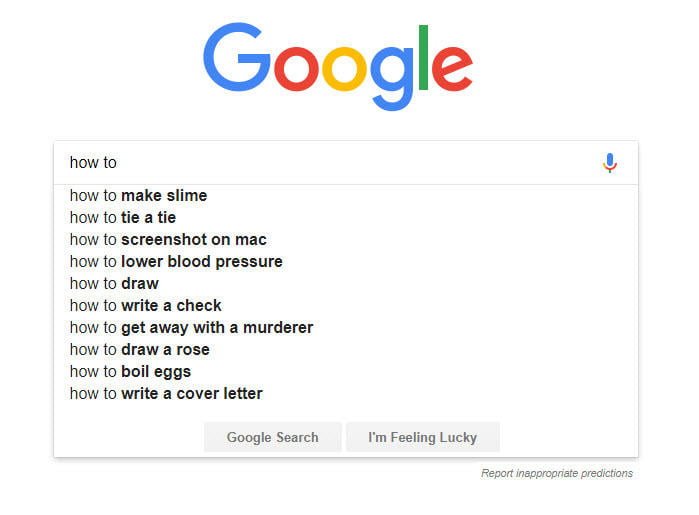Finding a keyword that doesn’t have a single article on the web can be a challenging task, but here are some steps you can take to increase your chances of success:
Table of Contents
- Brainstorm potential keywords: Start by brainstorming a list of keywords related to the topic you’re interested in. Think of different variations and synonyms that might be relevant.
- Use a keyword research tool: There are several keyword research tools available online that can help you find related keywords, such as Google Keyword Planner, Ahrefs, or SEMrush. Use these tools to find variations of your initial keyword list and identify potential opportunities.
- Use a search engine: Conduct a search using your chosen keywords to see if any articles or web pages exist for them. If there are no results, try to refine your search with a more specific keyword phrase or long-tail keyword.
- Check alternative search engines: Sometimes, Google may not show all the relevant search results, so try using alternative search engines like DuckDuckGo or Bing to see if they produce any unique results.
Also Read: High CPC keywords for Adsense in Real Estate Niche in 2023
- Use social media platforms: Social media platforms like Twitter, Reddit, or Quora can be a good source for finding unique content. Search for your chosen keywords on these platforms to see if there are any discussions or threads related to the topic.
- Create the content yourself: If you can’t find any articles or web pages related to your chosen keywords, consider creating the content yourself. Write a blog post or article on the topic and optimize it for your chosen keywords. This can help you rank higher on search engines and attract visitors to your website.
Step-by-Step Process in Finding the Keyword that Doesn’t Have a single article on the Web
Here we are going to see the process of finding the keyword that doesn’t have a single article on the web.
Sign in to your SEMrush Account
If you have a SEMrush account please login to it or choose the plan that has the option to explore the keyword magic tool in SEMrush.
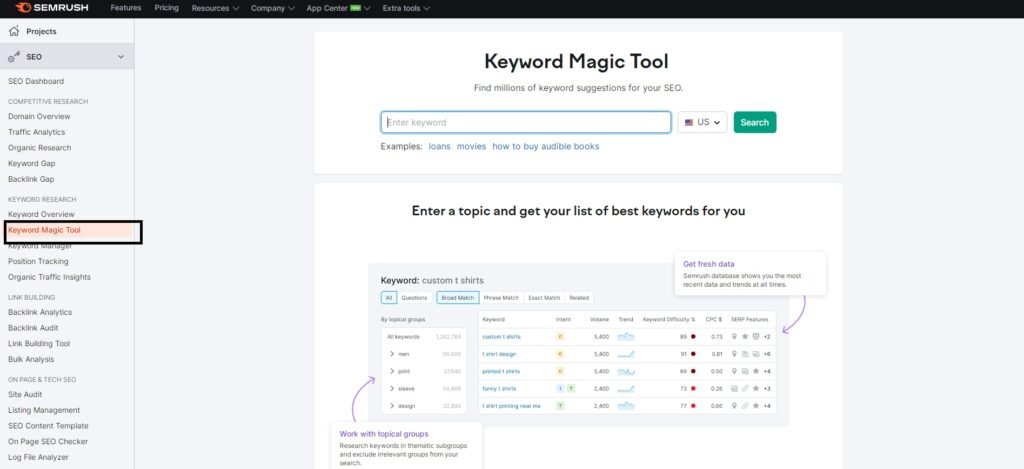
This tool has the best keyword filters and can help us in exploring the best keywords that are widely searched over the internet.
Search for a short and widely-known keyword
Search for a keyword that is widely known and accepted on the web, say for example here we have chosen “Books”.
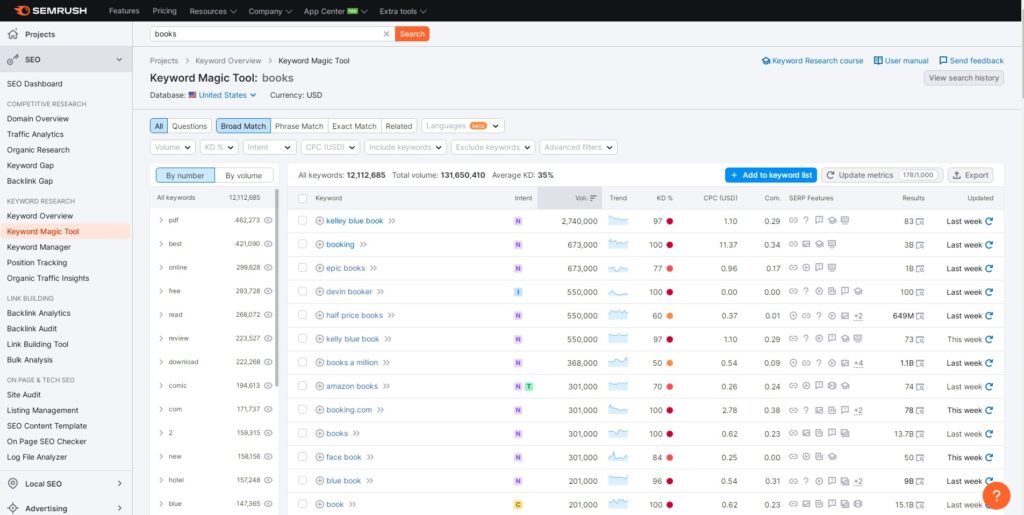
Type the keyword “Books” in the main keywords search tab and it provides you an option to view multiple keywords related to the same term.
In the given scenario, the SEMrush tool identified 12,112,685 various keywords related to “Books” with different keyword difficulties and volumes.
Filter using Results in SERP
You will find an option to filter the results in SERP (search engine result pages) and choose the number “0” into it to see the various keywords available or widely searched on the web.

Now it’s time to choose the keyword difficulty to “Very Easy” or “Easy”.
This will help you get the best keywords where your article will get rank higher within a very short time.
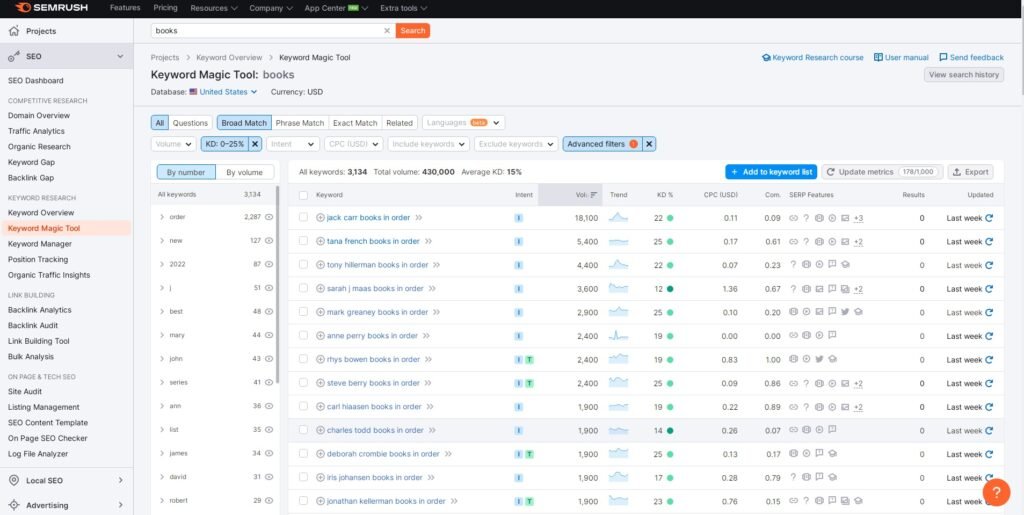
Now the filtered list is 3,134 as per the SEMrush (Narrowed down list)
There are 4 intents to further narrow down the topic of your article, if your article is about providing information, choose “Informational” and look for the keywords that are most suitable to you.
Time to write content
Do good research on the topic to write valuable content, we suggest using Google Scholar to find the research articles on the topic that can be considered authentic and reliable sources of information, and be sure to tag the source of the content as this article will be brand new over the internet.
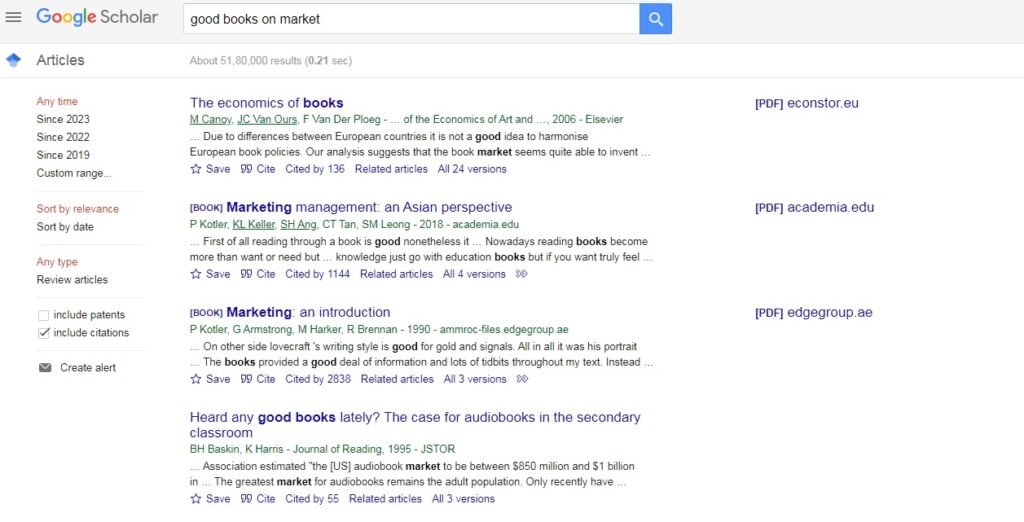
Frequently asked questions on how to do proper keyword research for blog articles
Why is keyword research important for blog articles?
Keyword research helps you to optimize your blog post for search engines, making it more likely to be discovered by people searching for information related to your topic. It can also help you to identify gaps in the information that is available on your topic and create content that fills those gaps.
What are some tools for keyword research?
There are many keyword research tools available, such as Google Keyword Planner, Ahrefs, SEMrush, Moz, and Ubersuggest, that can help you identify relevant keywords and provide data on search volume, competition, and more.
How many keywords should I use in my blog post?
It is recommended to use 1-3 primary keywords per blog post, and several secondary keywords or variations of the primary keyword throughout the post.
Where should I place my keywords in my blog post?
Include your primary keyword in the title of your blog post, in the first paragraph of your content, in headings and subheadings, and in the meta description. Use secondary keywords throughout your content in a natural and relevant way.
How often should I conduct keyword research for my blog articles?
Keyword research should be an ongoing process, as search trends and user behavior can change over time. It is recommended to conduct keyword research for each new blog post and to update your keyword strategy periodically.
Conclusion
In conclusion, finding a keyword that doesn’t have a single article on the web can be a challenging task. However, some steps that you can take to identify potential opportunities include brainstorming potential keywords, using a keyword research tool, checking search volume and competition, using long-tail keywords, looking for gaps in existing content, analyzing your website analytics, and using a thesaurus.
Remember that finding unused keywords is just the first step. You still need to create high-quality content that targets these keywords and provides value to your audience. By following these steps, you can increase your chances of finding a keyword that has little to no competition and create content that stands out from the rest.

